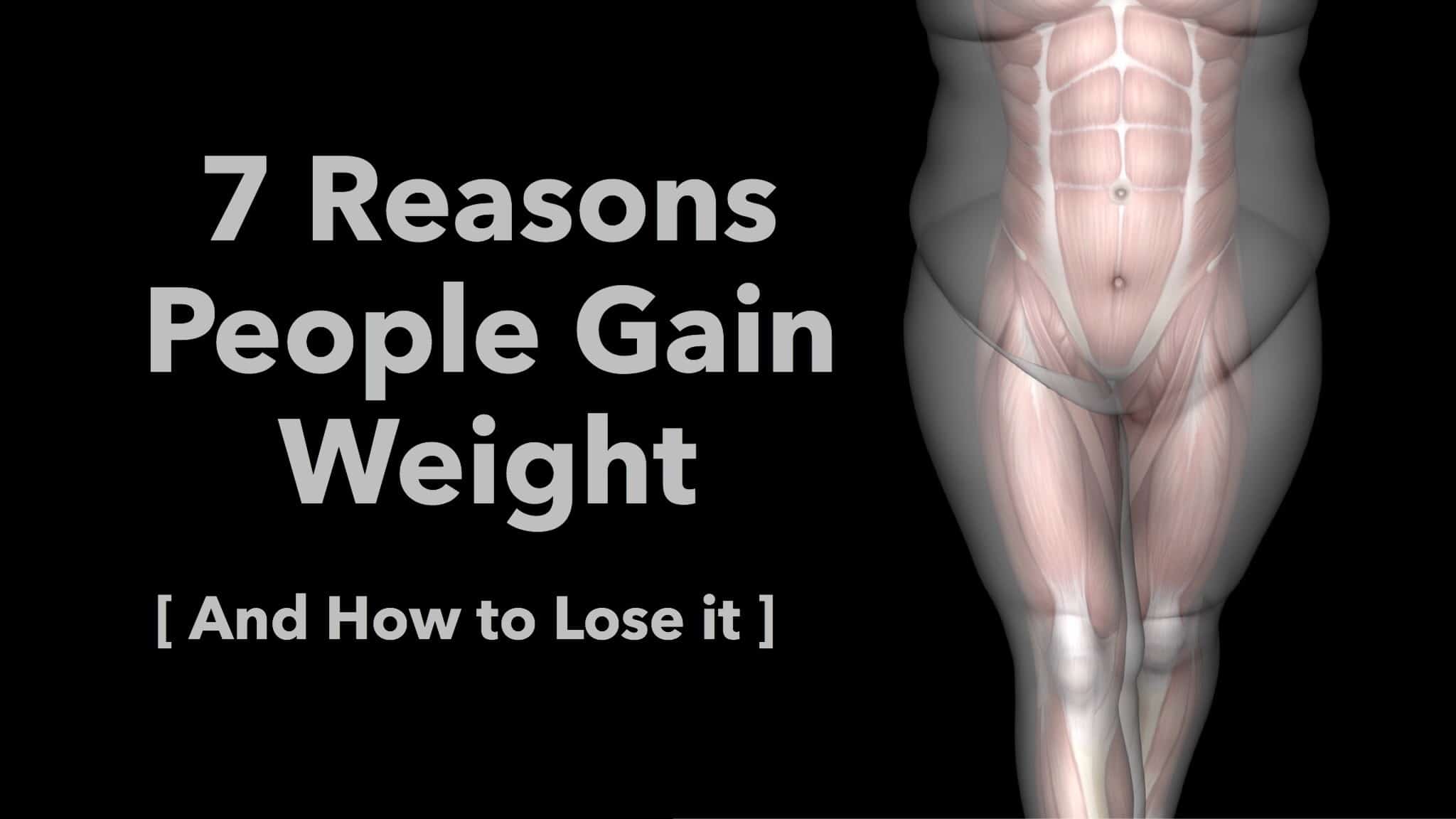Tell people that biology and the environment cause obesity and they are offered the one thing we have to avoid: an excuse. As it is, people who see more fat people around them may themselves be more likely to gain weight. – Andrew Lansley, Former Health Secretary to Great Britain
Mr. Lansley, who for years served as a central role to the National Health Service in the United Kingdom, hit the nail on the head. Indeed, biology and genetics are known to affect one’s ability to gain or lose weight. However, he may also have a point that too many people use the genetic, environment, or biology excuse to rationalize their weight gain.

Lifestyle choices significantly influence whether or not we’re able to maintain a healthy weight. Making the conscious choice to eat deliberately, exercise regularly, and get enough sleep are all within our control – and, consequently, determine if we’re able to maintain a healthy weight over the long-term. As in, getting to a healthy weight and sustaining that all-important measure.
In this article, we discuss 7 reasons why people gain weight. By no means is this list all-inclusive, but it does recognize the most common behaviors contributing to weight gain.
7 REASONS PEOPLE GAIN WEIGHT (AND HOW TO LOSE IT)
1. SKIPPING MEALS
Contrary to popular opinion, abstaining from regular meals (3 to 5 per day) does not hasten the weight loss process. In fact, skipping meals is incredibly unproductive to weight loss – not to mention, a very unhealthy choice of action.
In a 2015 study published in The Journal of Nutritional Biochemistry, researchers made the following conclusions:
Temporary food restriction initiated gorging behavior that persisted during refeeding; consequently, metabolism-related measurements (showed) metabolic abnormalities…restriction-induced gorging mice had increased intraabdominal fat accumulation, (and reduced) insulin sensitivity.
In short, skipping meals promotes fat growth – a fact proven by science.
THE FIX:
Instead, eat three whole or five healthy, small meals through the day. Drink plenty of H20, as well.
2. NOT EATING A NUTRITIOUS BREAKFAST
“Breakfast is the most important meal of the day.” How many dozens of times have we heard this throughout our life? Well, there’s a reason why the axiom is repeated so much: it’s absolutely true.
A clear distinction must be made here. It is much, much better – in terms of maintaining weight – to eat a light, nutritious breakfast than the equivalent of a buffet. Eating a healthy breakfast can kick-start your metabolism.
THE FIX:
Breakfast with whole grains, low-calorie orange juice, and fresh fruits, is a perfect combo for getting your day started off right.
3. SLEEPING TOO MUCH OR TOO LITTLE
Yes, too much or too little sleep can cause weight gain. The simple reason: your metabolic functions dramatically slow either way.
THE FIX:
The National Sleep Foundation (NSF) recommends the following sleep durations, classified by age:
School-age children (6-13 years): 9 to 11 hours per night
Teenagers (14-17 years): 8 to 10 hours per night
Young adults (18-25 years): 7 to 9 hours per night
Adults (26-64 years): 7 to 9 hours per night
Older adults (65+ years): 7 to 8 hours per night
4. NOT CHECKING THE SCALE
This one’s going to generate some debate, which is good!
Here’s the thing – if you don’t know where you’re at, you have no idea where you’re going. Does this mean that you should step on the scale every day? No. Every other day? No.
Why is checking the scale on an occasional basis important? Because it can indicate disproportionate and unexplainable weight gain. Because it can indicate that you’ve been feasting a bit too much.
THE FIX:
Check the scale no more than one – at the max, twice – on a weekly basis. Record this number and make the necessary lifestyle changes.
5. MAJOR LIFE CHANGES
Change is the one constant throughout life. Career changes, having (and taking care of) a baby, financial challenges, etc.
Nutritionist Carolyn Brown says “Any kind of major life shifts, even the positive ones, cause stress, anxiety, and very often unconscious comfort eating.”Anytime our brain is confronted with a new challenge, it (sometimes subtly) alters the mind-body connection, which can lead to weight gain in some scenarios.
THE FIX:
When faced with a new challenge, the key to a smooth transition is stress management. Fortunately, there are several stress management techniques and practices out there to help. Meditation, exercise, yoga, and mindfulness practice are just a few examples.
6. THE PASSING OF TIME
As we age, our metabolic activity slows – something that’s inevitable. As such, it is necessary for us to “outsmart” time to maintain a healthy weight. This, of course, means changing up our diet, exercise regimen, and even how we keep ourselves entertained.
THE FIX:
Be honest about your lifestyle. Are you getting some light exercise on a regular basis? Are you willing to abstain from “guilty pleasures?” Instead of watching your favorite T.V. programs, can you find another method of relaxing that incorporates activity (ex: going for a nature walk)?
Adjust to time is key to keeping a healthy weight.
7. LOSING MUSCLE
A correlation exists between loss of muscle and weight gain. The former initiates nutritional and metabolic changes.
“Starting in our 30’s, we lose muscle mass every year,” says Maryann Jacobsen, Registered Dietitian. This process is often slow and thus difficult to recognize.
THE FIX:
Similar to “outsmarting” time, in a similar way we must “outsmart” physical changes. We accomplish this by allocating some more time to activities that promote strength; lifting weights, resistance training, and yoga are all viable, useful options.

No comments:
Post a Comment